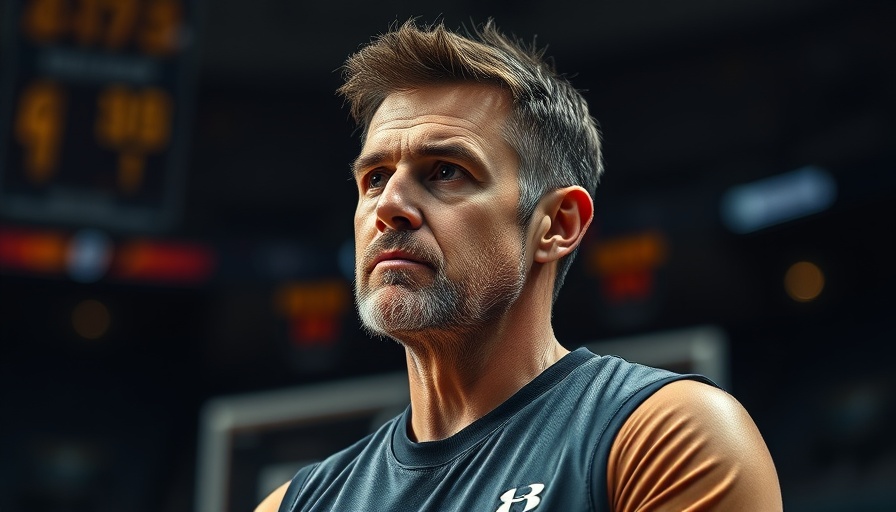
Disturbing Incidents: Head Coach Charged with OVI
In a surprising twist that has captured the sports community's attention, Kevin McGuff, the head coach of the Ohio State women's basketball team, was charged with operating a vehicle under the influence (OVI) after police found him parked in his own front yard. Authorities reported that McGuff exhibited erratic behavior, struggled with basic sobriety tests, and ultimately refused to submit to a Breathalyzer test. This incident raises questions not only about the personal choices of public figures but also their responsibilities as role models.
The Incident’s Unfortunate Context: More Than Just a Traffic Stop
According to police reports, McGuff's situation escalated when officers responded to reports of a vehicle obstructing a driveway. They found McGuff attempting to spell the word "alphabet"—an alarming detail that underscores potential concerns about cognitive impairment commonly associated with alcohol consumption. The irony of a coach struggling with such basic tasks offers a sobering reminder that professionals in high-pressure roles are not immune to personal crises.
Understanding the Impact of Choices: A Broader Perspective
While McGuff's predicament explores individual fault, it also highlights systemic issues within sports culture—particularly regarding alcohol consumption among coaches and athletes. Recent studies suggest that pressures to maintain excellence can lead some coaches and players to seek solace in substances, creating a disconnect from healthy coping mechanisms. The sports world must address these attitudes head-on to prevent similar occurrences.
Public Reactions: Mixed Feelings Within the Community
The reaction to McGuff's charges has been varied, reflecting a spectrum of support and condemnation. As fans and fellow professionals grapple with the implications of his actions, some underscore the importance of mental health support for athletes and coaches alike. Others, however, express frustration that such behavior could tarnish the reputation of a respected institution like Ohio State University. The unfolding discussion highlights a crucial moment where fans are called to evaluate their expectations of sports figures.
The Future of McGuff's Career: Will He Face the Consequences?
Looking ahead, the question remains: What will this mean for McGuff's future as a coach? Reports indicate that he has not yet been suspended from his position at Ohio State, which has sparked debate regarding accountability in college athletics. As of now, McGuff's personal and professional image hangs in the balance, reflecting a larger conversation about the consequences of one's actions in the public eye.
Connecting the Dots: A Lesson for Us All
This incident serves as a cautionary tale; it reminds us all of the fragility of public trust and the importance of mental wellness. As we dissect events like these, it's crucial to remember that behind every headline is a human being grappling with choices that can have profound impacts on their life and those around them.
As this story develops, let us take a moment to reflect on the pressures facing public figures—especially in the arena of sports. What steps can institutions take to ensure their staff receives the support they need, both personally and professionally? This incident reignites a vital conversation about prioritizing mental health in the crucible of competition.
In light of McGuff's charges, it might be prudent for aspiring coaching professionals and athletes to learn about the importance of seeking help and engaging in open dialogues about mental health, rather than resorting to destructive behaviors.
 Add Element
Add Element  Add Row
Add Row 



Write A Comment